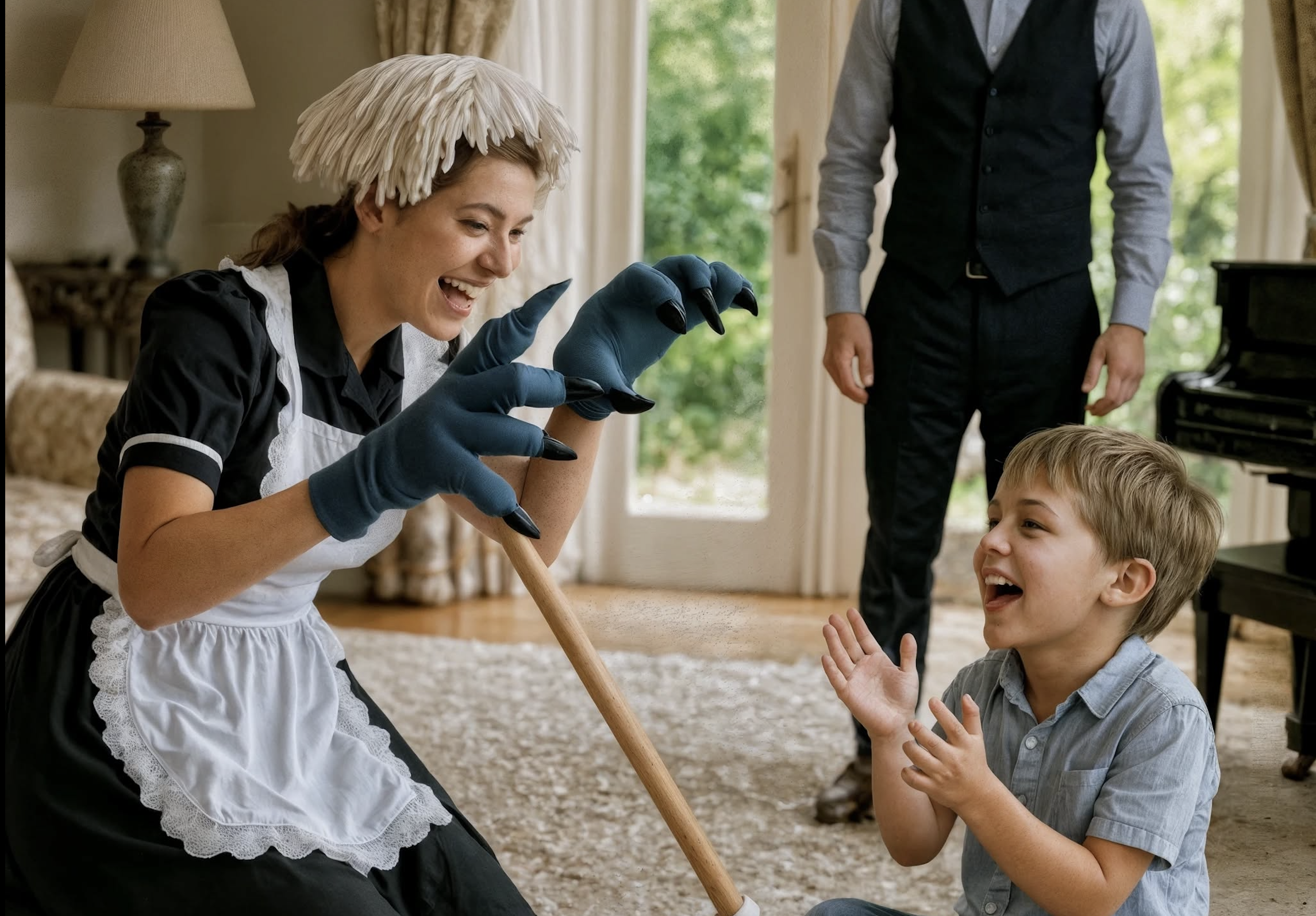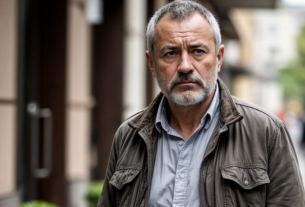The Millionaire’s Silent Son
Thomas Caldwell was a millionaire who led a life that many could only dream of: vast estates, luxury cars, a private jet, and a house designed like a palace. Yet, since the death of his wife Emily two years earlier, none of it brought him joy anymore. The grand chandelier no longer sparkled, the piano in the hall gathered dust, and, most heartbreaking of all, his five-year-old son, Lucas, had not uttered a single word since the funeral.
Lucas had been a bright child before the tragedy, always curious and full of laughter. But his mother’s sudden death in a car accident had broken something deep inside him. Since then, the child had retreated into silence, communicating only through gestures and drawings. Crushed by grief, Thomas had thrown himself headlong into work, traveling constantly and fleeing the one place that should have been a home: his empty house.
To manage the house, Thomas hired a succession of domestics and nannies, but none of them stayed long. Lucas didn’t respond to any of them, until the day Clara, a new house employee, arrived. Clara was quiet, humble, and without extraordinary qualities, except for her sweet smile and gentle nature. She was in her twenties, wore second-hand clothes, and always kept her hair in a simple braid. Upon her arrival, no one really paid attention to her—except Lucas.
Clara never forced Lucas to speak. She didn’t talk to him as if he were «broken.» Instead, she made funny faces, read picture books aloud with theatrical voices, and left hand-drawn notes on his pillow with messages like: «If you’re sad, it’s okay: even the clouds cry.» At first, Lucas merely observed her, but little by little, he began to follow her around the house. He would sit near her while she cleaned, tug on her apron when she hummed to herself, and sometimes draw her with crayons, always with a smile on his face.
One rainy afternoon, Clara built a tent with sheets in the living room and invited Lucas inside. They ate cookies and pretended to be explorers hiding from jungle animals. Lucas laughed once, and Clara smiled softly, saying, “That laugh is magic.” Something in Lucas was changing, but Thomas had no idea. He was gone again—to Hong Kong, Dubai, London—chasing business, unaware that the most important thing in his life was slowly reawakening at home.
It was a Wednesday when Thomas decided to return earlier than expected, without warning. The board meeting in Geneva had finished sooner than planned, and, for once, he felt a sudden desire to see his son. He stopped at a high-end boutique and bought a limited-edition Italian model car that Lucas had once mentioned while flipping through a catalog. It felt good to do something paternal again.
Upon his arrival at the villa, no staff greeted him. He had dismissed them for the afternoon in a message the day before. With the toy in one hand and the briefcase in the other, he tiptoed in through the service door, hoping to surprise Lucas. But what he saw as he walked into the hallway froze him instantly. There, in the middle of the large living room, was Clara, the house employee, pretending to be a roaring dinosaur, with a mop tied to her head like a mane. Lucas was doubled over with laughter, tears of joy in his eyes. Clara wasn’t just playing—she was performing. She growled, stumbled, roared again, and then collapsed onto the floor like a defeated dragon. Lucas crawled over to her and wrapped his arms around her neck.
And then came the moment that made Thomas’s world crash down. Lucas whispered: «Mama.» Thomas dropped the model car, which hit the floor with a sharp clatter. Clara suddenly spun around, startled. Lucas looked up, suddenly frightened. But Thomas didn’t shout or ask questions; he simply walked over, knelt down next to his son, and embraced him, trembling.
“He called you Mama,” Thomas said in a broken voice. Clara’s eyes welled up with tears.
“I didn’t tell him to. He started saying it a few days ago. I tried to correct him…”
Thomas met her gaze for the first time, not as an employer, but as a father. And for the first time in years, he felt something crack: the wall, the distance, the cold. “Thank you,” he murmured, “for giving me back my son.”
In the following days, Thomas truly stayed home. He joined Clara and Lucas for impromptu picnics in the garden. He watched Clara teach Lucas to bake cookies, even if flour exploded all over the kitchen. Lucas began to speak more, first in quiet whispers, then in complete sentences. His drawings now featured smiles, sunshine, and people holding hands. Thomas realized that he hadn’t just hired a domestic worker, but had, unknowingly, invited a healer into his home.
One night, Clara found a letter on her pillow. «Dear Clara, you are not only the woman who helped my son feel again, you helped me remember what it’s like to be a father. Please, no longer consider this a job. I would like you to stay not only in this house, but in our lives.»
A few months later, the villa no longer looked like a museum. It was full of warmth, laughter, and love. One day, sitting on the front steps watching the sunset, Lucas rested his head on Clara’s shoulder and said:
“Can I call you Mama Clara forever?”
Clara looked at Thomas, who nodded, his eyes wet. She hugged Lucas tightly.
“You already do, sweetie.”
Money can build houses, but love builds families. Sometimes, the most broken hearts are healed not by wealth, but by kindness, patience, and a simple human connection. Never underestimate the quiet souls: they often carry the brightest miracles.



